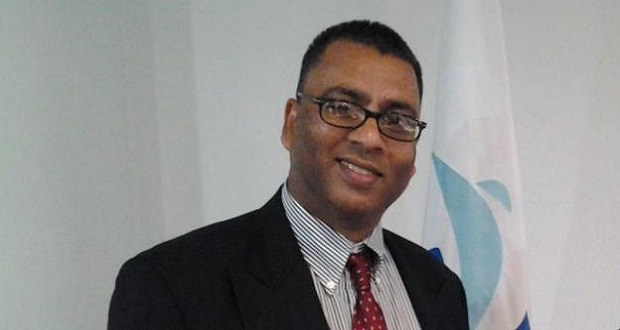No confidence in Guyana
Dear Editor,
Investors do not have confidence in Guyana. Despite the massive commercial oil discoveries made since 2015, Guyana is not attracting the level of foreign direct investment that accompanies oil and gas discoveries.
As prospective businessmen poured in the country for the Guyana International Petroleum Business Summit & Exhibition (GIPEX-2019), numerous possible business ventures and partnerships were discussed. The responses to overtures of Guyanese businessmen to investors shared a common theme: the current climate in Guyana is not conducive to large-scale investment because of the actions of the incumbent Granger Administration.
The absence of parliamentary democracy and the factors that have led to this situation take pride of place for destroying investor confidence in Guyana. Investors asked of locals such questions as: Why would the Government not hold elections as dictated by your Constitution? How can a Government openly violate the Constitution with seeming impunity? Are there no consequences? Will there be elections on the 2nd of March? What guarantee exists that Granger will respect the results of the elections in the event of a loss?
Another area of great concern was the Rule of Law. Granger and his executive continues to rule by decree despite being deemed ‘caretaker’, and then violating all decency by refusing to hold elections by the most generous of timelines: on or before 19th of September. Investors noted that Cabinet was meeting weekly, and decisions were being made and implemented.
Investors are not partisan Guyanese; they are persons who have accumulated great wealth by being prudent, and they are all well versed with what constitutes a stable society.
Guyana is not the first country to have a usurper executive in control; the oilmen have seen this played out on other stages before, always with the same disastrous results.
Many Guyanese provided potential investors with land leases signed by Winston Jordan after 21st December 2018. Some furnished agreements with NICIL all for prime lands, and yet none was able to attract finance, because, for all the local politics and attendant bravado, investors know that those leases are not worth the paper they are printed on.
GIPEX was also notable for its absentees as much as for who attended. The US Energy Secretary was an early cancellation, but others such as Bank of America, Cit Bank, and Morgan Stanley sent a strong signal that all is not well with Guyana by their late absence. As a result, no big financial institution was present, the kind required to lend to projects’ developers.
The local lending cap is US$18 million. It limits development. The failure of the Granger Administration to pay the court-ordered settlement of US$2.2 million to DIPCON has given such institutions cause to reconsider doing business in a lawless jurisdiction.
Granger’s pardon of Winston Jordan was an ‘unpardonable’ act in the eyes of those who believe stable societies are based on the rule of law.
To their credit, no member of the Granger Administration made any proposal of a Public/Private Partnership on any infrastructure project. This is given that investor confidence in such arrangements in Guyana has evaporated following the de facto nationalisation of the Berbice Bridge Company, and Granger’s men would have been laughed out of the room.
The news of the acquisition of Hampton Court airstrip by executive Order made under the Acquisition of Lands for Public Purposes Act has not helped to foster an image of a country that has great respect for individual property rights. That the order has been signed by a caretaker minister lends more fuel to that pyre.
The job-loss debacle at Troy Resources caused by unthinking actions of a junior minister was noted by savvy company executives.
David Granger is seemingly oblivious to all the obstruction to development his actions continue to cause day after day. Decisions of ‘Cabinet’ are announced; appointments of persons to serve on the boards of state entities, mining land allocations, land leases, all of which are not envisioned as legalities for an executive in caretaker status.
Do the persons who are appointed to state boards know the consequences for any decisions they make going forward? I would suggest they seek non-partisan legal advice before accepting such appointments. Citizens in general should also do the same before entering into any arrangement with Government.
All businessmen should be aware that any deal made now will be overturned later. The PPP certainly has made it clear that any arrangement made since 21st December 2018 will not be respected as legally binding. That is the crisis of confidence facing potential investors.
The international oil companies do not want to be cozied up to by an executive, they want a stable country where the citizens are well informed and satisfied that there is equity. A real partnership where local content grows as the nation develops skills and capabilities.
Companies and investors want to know their money is safe and will earn a healthy rate of return, and that they and their money are protected by the rule of law.
Guyana will not see real growth until investors can have confidence in our Executive to adhere to the rule of law; in our Judiciary to be impartial adjudicators, and in a return to parliamentary democracy as our governance model. Guyana also needs high-quality leadership to foster a healthy investment climate, and to ensure growth is across-the-board and not in Government’s coffers only.
Jobs, housing, construction and revitalisation of the other pillars of our economy are vital to our well-being.
The PPP grew Guyana without oil and gas. Given a chance, it will take the Guyanese standard of living forward in great leaps and bounds. Foreign direct investment, international financial institutions, and confident investors are vital to our nation’s development. All of those are dependent on a change in direction on the 2nd of March 2020.
Respectfully,
Robin Singh






















